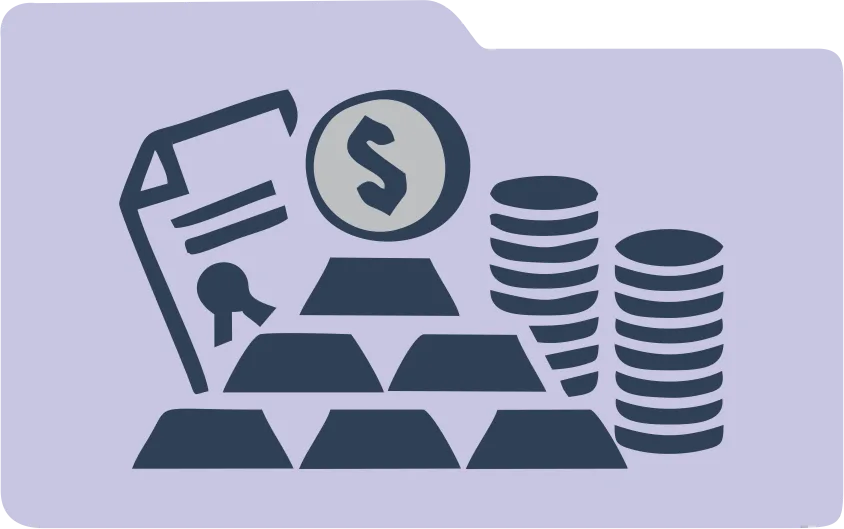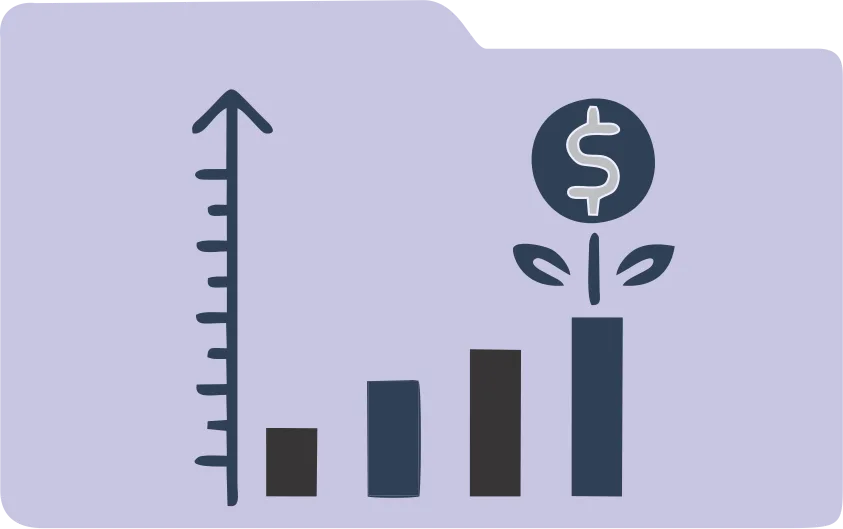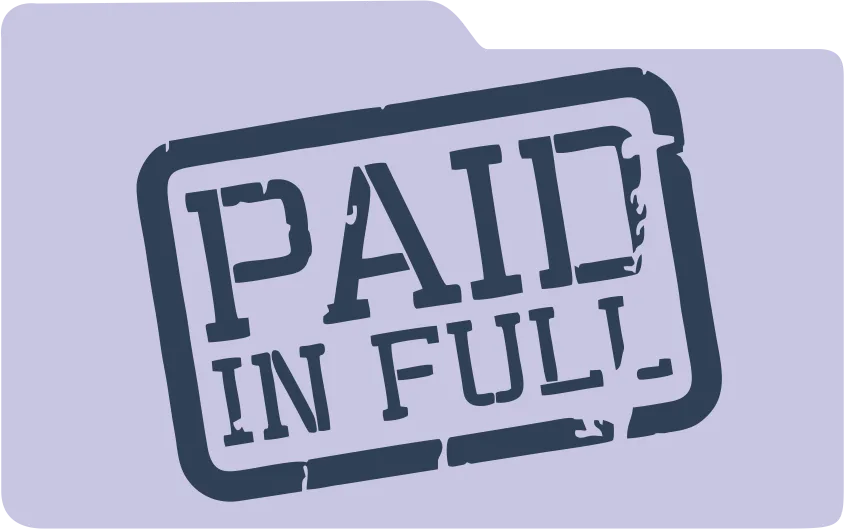What is financial literacy?
Financial literacy is the ability to understand financial education coupled with the ability to apply such knowledge when managing one’s own financial resources, making informed decisions in planning and growing one’s own wealth. It includes having an understanding of financial concepts such as budgeting, saving, investing, and debt, as well as having knowledge of taxes and insurance.
Why is financial literacy so important to building wealth?
Financial literacy is important to building wealth because it gives individuals the knowledge, skills, and confidence to make informed decisions about how to manage their money and investments. This can lead to better outcomes, such as reducing debt, saving for the future, and investing in assets that can appreciate over time.
What is the difference between financial literacy and financial education?
The main difference is the practice of financial knowledge, that is, with financial education you learn about finance, while putting that knowledge into practice to increase your income, increase your overall wealth and protect your assets makes you Financially Literate.
Financial literacy and financial education are often used interchangeably, but there is a difference between the two concepts.
Financial literacy refers to an individual’s knowledge and understanding of personal finance and the financial system. This includes putting into practice skills such as budgeting, saving, investing, and understanding financial products and services. Financial education is a necessary foundation for making informed decisions about one’s finances.
Financial education, on the other hand, is a more formal and structured process of learning about personal finance and the financial system. This may involve taking courses, attending seminars or workshops, or engaging in self-study. Financial education can build on an individual’s financial literacy and provide a deeper understanding of financial concepts and strategies.
The Organisation for Economic Co-operation and Development (OECD) aptly defines financial literacy as not only the knowledge and understanding of financial concepts and risks but also the skills, motivation, and confidence to apply such knowledge and understanding in order to make effective decisions across a range of financial contexts, to improve the financial well-being of individuals and society, and to enable participation in economic life. Thus, financial literacy refers to both knowledge and financial behavior.
Who should pursue financial literacy?
Financial literacy is relevant for people of all ages and financial backgrounds, and is particularly important for those who are just starting to manage their finances, as well as those who are entering new stages in life, such as graduating from college, starting a family, or retiring.
Here are some groups of people who would benefit from pursuing financial literacy:
Young adults: Young adults who are just starting to manage their finances can benefit from financial literacy to help them make informed decisions about budgeting, saving, and investing.
Low-income individuals: Financial literacy can help low-income individuals make the most of their limited resources and create a path towards financial stability and security.
Women: Women often face unique financial challenges, such as wage disparities, longer life expectancies, and career interruptions, and financial literacy can help them overcome these challenges.
Investors: Investors, regardless of their level of experience, can benefit from financial literacy to better understand financial markets, investment products, and strategies.
Retirees: Retirees can use financial literacy to make informed decisions about managing their retirement savings and planning for their future.
Overall, financial literacy is a valuable skill that can help individuals of all ages and financial backgrounds make informed decisions about their finances and achieve their financial goals.
How to become more financially literate?
Becoming more financially literate can be a lifelong journey, and there are many resources and strategies you can use to improve your financial literacy. Here are some steps you can take to become more financially literate:
- Read books and articles: Start by reading books and articles about personal finance and investing. There is a wealth of information available, both online and in print, that can help you learn more about financial literacy.
- Take classes or workshops: Consider taking a class or workshop on personal finance or investing. Many community colleges, adult education centers, and investment firms offer courses and workshops on these topics.
- Use online resources: There are many online resources available that can help you become more financially literate, including websites, blogs, and financial calculators.
- Seek advice from professionals: Consider working with a financial advisor, accountant, or other financial professional. These individuals can provide personalized advice and guidance on your financial situation.
- Practice budgeting and tracking your spending: Start by creating a budget and tracking your spending. This can help you gain a better understanding of your financial situation and make informed decisions about your spending and saving habits.
- Start investing: Investing can be a great way to become more financially literate, as you will learn about various investment products and strategies, as well as the risks and rewards of investing.
- Seek out educational opportunities: Take advantage of any opportunities to learn about personal finance, such as financial seminars, webinars, and conferences.
Remember, financial literacy is a lifelong journey and requires a commitment to continuous learning and improvement. By taking advantage of these resources and strategies, you can become more financially literate and achieve your financial goals.
How to gain more financial knowledge with hoardingwealth.com?
Hoarding Wealth is a financial education website that offers resources and information to help people become more financially literate. Here are some ways to use Hoarding Wealth to improve your financial literacy:
- Read Articles and Blog Posts: Hoarding Wealth offers a variety of articles and blog posts on a variety of financial topics, including budgeting, saving, investing, and planning for retirement. By reading these articles, you can learn more about personal finance and improve your financial literacy.
- Use financial calculators: Hoarding Wealth offers completely free financial calculators that can help you determine your savings goals, plan for your retirement, and evaluate your investment portfolios. These tools can help you gain a better understanding of your financial situation.
- Connect with the Hoarding Wealth Community: Share and learn from the experiences of our members who can provide help and guidance on your financial situation.
- Attend Webinars and Events: Hoarding Wealth offers webinars and events on a variety of financial topics, including investing, budgeting, and retirement planning. These events can provide valuable information and insights to help you improve your financial education.
Overall, by taking advantage of the resources and tools available on the website, you can gain a deeper understanding of personal finance and achieve your financial goals.
Principles of Financial Literacy
Financial literacy is a critical aspect of personal finance that can have a major impact on an individual’s financial well-being. The overarching goal of financial literacy is to educate individuals on how to earn, spend, save, borrow, and protect their money, allowing them to make informed decisions about their finances and achieve their financial goals.
One of the key elements of financial literacy is understanding how to earn money. This includes learning about different types of income, such as salary, investment income, and passive income. It also involves understanding the factors that can impact an individual’s earning potential, such as education and experience, as well as the importance of career development and ongoing learning.
Once an individual understands how to earn money, the next step is to learn about effective spending habits. Financial literacy involves understanding the difference between needs and wants, as well as developing a budget to manage income and expenses. This can help individuals prioritize their spending and make informed decisions about how to allocate their resources.
Saving is another important aspect of financial literacy. This includes understanding the benefits of saving, such as creating an emergency fund, saving for short-term and long-term goals, and investing for retirement. Financial literacy also involves learning about different types of savings accounts, as well as the various investment products and strategies available to help individuals grow their savings.
Borrowing is another aspect of financial literacy. This includes understanding the different types of debt, such as credit card debt, student loans, and mortgage debt, as well as the impact of interest rates on borrowing. Financial literacy also involves learning about credit scores and how to maintain a good credit history, as well as strategies for reducing debt and avoiding financial pitfalls.
Financial literacy involves learning about protecting one’s money. This includes understanding the importance of insurance, as well as different types of insurance products, such as life insurance, health insurance, and property insurance. It also involves learning about financial scams and fraud, as well as how to protect oneself from financial scams and fraud.
The overarching goal of financial literacy is to equip individuals with the knowledge and skills they need to make informed decisions about their finances and achieve their financial goals. Whether an individual is just starting to manage their finances or is well into their career, financial literacy is a critical component of personal finance that can have a major impact on an individual’s financial well-being.
Financial literacy ensures financial success?
Financial literacy is a crucial factor in achieving financial success, but it is not the only factor. Financial literacy provides individuals with the knowledge and skills they need to make informed decisions about their finances, but it is just one piece of the puzzle. Other factors, such as personal responsibility, discipline, and hard work, also play a role in achieving financial success.
Having financial literacy can help individuals make better decisions about earning, spending, saving, and investing their money. For example, by understanding the power of compound interest, individuals can make informed decisions about saving and investing that can lead to wealth building over time. Financial literacy also helps individuals avoid common financial pitfalls, such as high-interest debt and investment scams, that can negatively impact their ability to accumulate wealth.
That being said, financial literacy can be a powerful tool for individuals to achieve financial success. By understanding the basics of personal finance, individuals can make informed decisions about earning, spending, saving, borrowing, and protecting their money. This knowledge can help individuals set and achieve their financial goals, such as paying off debt, saving for a down payment on a house, or investing for retirement.
Financial literacy also helps individuals avoid common financial pitfalls, such as high-interest debt, investment scams, and overspending. By having a strong understanding of personal finance, individuals can make better decisions about their finances and avoid financial mistakes that can have a long-term impact on their financial well-being.
Financial literacy can have a profound impact on an individual’s relationship with money. By gaining a better understanding of personal finance, individuals can develop a healthier and more positive relationship with money. Here are some ways that financial literacy can help improve an individual’s relationship with money:
Increases confidence and control: Financial literacy gives individuals the knowledge and skills they need to make informed decisions about their finances. This can increase their confidence and sense of control over their financial situation, helping them feel more secure and less overwhelmed by financial decisions.
Improves money management skills: Financial literacy provides individuals with the tools they need to effectively manage their money, including budgeting, saving, investing, and managing debt. This can help individuals make the most of their resources and avoid common financial pitfalls.
Encourages financial planning: Financial literacy can help individuals understand the importance of setting and working towards financial goals. This can encourage individuals to develop a financial plan and take steps towards achieving their financial objectives, such as saving for retirement or paying off debt.
Promotes financial stability: Financial literacy can help individuals make informed decisions about their finances that lead to long-term financial stability. This includes avoiding high-interest debt, saving for emergencies, and investing for the future.
Reduces financial stress: Financial literacy can help individuals avoid common financial mistakes that can lead to financial stress. This can help individuals feel more secure and less anxious about their finances, allowing them to focus on other aspects of their lives.
The Psychological Benefits of Financial Literacy
Financial literacy is the knowledge and skills needed to make informed decisions about earning, spending, saving, borrowing, and protecting money. This knowledge is crucial not just for individuals and families seeking financial stability and security, but also for their overall well-being. This chapter explores the psychological benefits of financial literacy and how it can impact an individual and a family’s personal finances.
The Importance of Financial Literacy
Financial stress is a common problem in today’s society, affecting millions of individuals and families. This stress is often the result of a lack of financial knowledge and understanding, leading to poor financial decision-making and difficulty managing money. Financial stress can lead to anxiety, depression, and other mental health issues, and can also cause tension in relationships.
Financial literacy, on the other hand, provides individuals with the knowledge and skills needed to make informed decisions about their finances. This understanding allows individuals to make smart financial decisions, manage their money effectively, and reduce their financial stress.
Reducing Financial Stress
One of the biggest psychological benefits of financial literacy is the reduction of financial stress. When individuals have a good understanding of personal finance, they are better equipped to manage their money, avoid financial pitfalls, and make informed decisions about their finances. This can lead to increased financial stability and security, reducing stress and anxiety.
For example, individuals who understand the importance of budgeting, saving, and investing are better equipped to make decisions that lead to long-term financial stability. This, in turn, can reduce stress and improve mental health.
Improving Mental Health
Financial literacy can also play a significant role in improving mental health. Financial stress is a major contributor to feelings of worry and anxiety, and can lead to long-term mental health issues. When individuals have a good understanding of personal finance, they are better equipped to manage their money, avoid financial pitfalls, and make informed decisions about their finances, reducing the likelihood of financial stress and improving mental health.
Financial literacy can also provide individuals with a sense of control and empowerment when it comes to their finances. This can lead to increased confidence and security, reducing feelings of stress and anxiety.
Impact on Family Relationships
In addition to its impact on individual mental health, financial stress can also have a significant impact on family relationships. The study found that financial disagreements between partners can lead to tension and conflict within the household, and can even contribute to the breakdown of relationships.
Financial literacy can play a role in reducing this stress by providing individuals and families with the knowledge and skills needed to manage their finances and make informed decisions about their money. This can lead to improved communication and cooperation, reducing financial stress and improving relationships within the family.
What can we conclude from all aspects of financial literacy?
In general, financial literacy is a critical component of personal finance that plays a vital role in helping individuals and families to make informed decisions about their money. It encompasses a wide range of knowledge and skills related to earning, spending, saving, borrowing, and protecting money, and provides individuals with the tools they need to manage their finances effectively.
Financial literacy is important for many reasons, including reducing financial stress, improving mental health, and strengthening relationships. It can also play a role in improving financial stability and security, helping individuals and families to achieve their financial goals and build wealth.
Financial literacy is essential for financial success and well-being, and individuals and families are encouraged to seek out financial education and support to improve their financial literacy and achieve their financial goals. Whether through online resources, books, or workshops, there are many opportunities for individuals to improve their financial literacy and achieve their financial goals.















